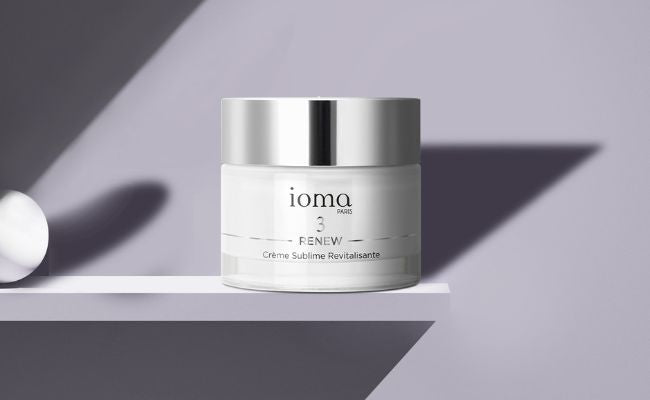Article: Retinol and sensitive skin: is it safe to use?

Retinol and sensitive skin: is it safe to use?
Retinol is emerging as one of the star active ingredients in anti-aging cosmetics. Derived from vitamin A, it's recognized for its proven effectiveness on wrinkles, firmness, and radiance. But its potency raises a key question: can sensitive skin benefit from retinol without the risk of irritation?
What is retinol?
Retinol belongs to the retinoid family of drugs, derived from vitamin A. It works by stimulating cell renewal and boosting the production of collagen and elastin, two key proteins for skin firmness and density.
Its benefits are widely documented:
- Reduction of wrinkles and fine lines.
- Improved skin texture and radiance.
- Action on pigment spots linked to the sun or age.
- Smoothing and even effect.
In dermatology, the most potent form is retinoic acid, available only by prescription. Retinol, used in cosmetics, is a milder but still active version.
Why can retinol irritate sensitive skin?
Sensitive skin is characterized by a fragile skin barrier, increased reactivity, and a tendency toward redness or tightness. Introducing a powerful active ingredient like retinol can cause:
Redness and tingling sensations
Retinol accelerates cell renewal by stimulating the division of keratinocytes (epidermal cells). When introduced too quickly or at too high a concentration, the skin can react with transient inflammation.
- Redness results from vasodilation of small blood vessels, triggered by irritation.
- Tingling is linked to hyperreactivity of the cutaneous nerve endings, which signal that the protective barrier is temporarily weakened.
These signs are usually temporary and will fade as the skin adjusts.
Dryness and flaking
By promoting cell renewal, retinol accelerates the elimination of the stratum corneum (dead surface cells).
- Result: the skin temporarily loses part of its protective lipid barrier.
- This disturbance leads to increased evaporation of water (insensible water loss) → feeling of dryness.
- Immature cells rise to the surface more quickly, resulting in visible desquamation (small peels or scales).
Hence the importance of combining retinol with treatments rich in moisturizing and lipid-replenishing agents (hyaluronic acid, ceramides).
Increased sensitivity to the sun
Retinol makes skin more vulnerable to UV rays for two main reasons:
- By thinning the stratum corneum, it reduces the natural UV protection barrier.
- By regulating melanin (protective pigment), it can temporarily reduce the skin's natural ability to defend itself from the sun.
Consequence: the skin becomes sensitized more quickly and the risk of hyperpigmentation increases.
This is why the use of retinol should always be combined with SPF 30 or 50 sun protection in the morning, even in winter.
Sensitive skin: can you still use retinol?
The answer is yes, provided you follow certain rules. Several studies show that gradual and appropriate use allows sensitive skin to tolerate retinol.
1. Choose the right concentration
- Low dosage (0.1% to 0.3%) to start with, to get the skin used to it.
- Encapsulated or time-release formulas significantly reduce irritation.
2. Introduce retinol gradually
- 1 to 2 applications per week at the beginning.
- Increase the frequency only if the skin reacts well.
3. Combine with enhanced hydration
A treatment rich in soothing agents (hyaluronic acid, ceramides, peptides) helps to compensate for the induced dryness.
4. Protect your skin in the morning
Retinol can make skin more sensitive to UV rays. Applying an SPF 30 or 50 sunscreen is essential to prevent further damage.
What alternatives are there for very sensitive skin?
Some skin types remain intolerant to retinol, despite precautions. In this case, other active ingredients with proven effectiveness can be considered:
- Bakuchiol: a plant-based active ingredient often presented as a natural alternative to retinol, better tolerated.
- Biomimetic peptides: to stimulate collagen without irritation.
- Stabilized Vitamin C : for radiance and even skin tone.
Conclusion
Retinol is a powerful anti-aging ally, but it requires careful introduction. For sensitive skin, it's not a no-go, but an active ingredient that should be used with caution: gradual dosage, moisturizing care, and sun protection are the keys to optimal tolerance.
Expert advice and the selection of appropriate formulas guarantee a successful experience. Because cosmetic science should always adapt to your skin—not the other way around.




